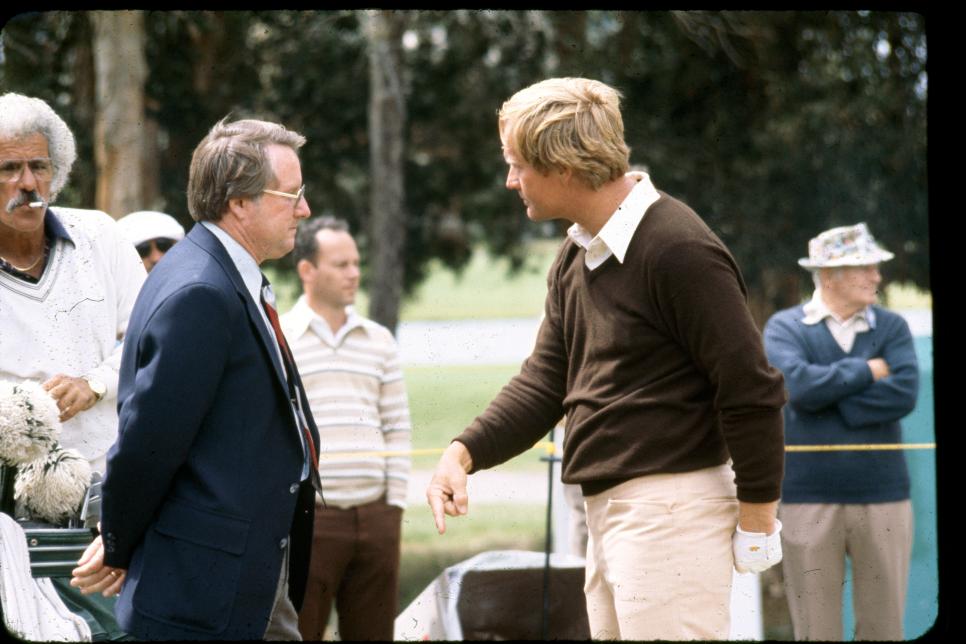Local Knowledge
The 1983 Rebellion: Our latest podcast revisits pro golf’s original crisis

PGA TOUR Archive
If you've followed professional golf for some defined period of recent history—let's say since the year 2000—it might have seemed as though the LIV Golf breakaway came out of nowhere.
Sure, it's obvious that players like Phil Mickelson had some serious issues with the PGA Tour, but at no point in the prime of his career was it heavily publicized, and a total schism like we're seeing today never seemed like even a remote possibility. The rumblings of a "premier golf league" came on like a kind of novelty, and then, before you knew it, the Saudis were involved, players defected, and the Tour had to go to the mattresses. It was total war.
A close look at the early history of the Tour, though, shows that while things have escalated to an unthinkable degree in the past year, the broader discontent of the game's best golfers is not exactly new. In 1983, with Deane Beman at the helm as commissioner of the Tour, Jack Nicklaus and Arnold Palmer instigated a rebellion that not only threatened Beman's job—and the jobs of his deputies—but threatened to redefine the role of the Tour itself. That spring and summer saw a series of maneuvers from both sides as they rallied their factions for a fight that would set the tone for the next 40 years of professional golf.
This story is documented in the first chapter of Adam Schupak's excellent book Deane Beman: Golf's Driving Force, about the life and career of the Tour's second commissioner. Nicklaus' chief complaint was simple: The Tour, since 1980, had transformed from a glorified organizing body into a burgeoning corporate juggernaut. The founding of their marketing arm that year, a response to stagnant growth in the late '70s, had been wildly successful in increasing purses and television ratings, and had seen the Tour expand into fields like merchandising, course design (Sawgrass was new on the scene), corporate sponsorship, and more. Nicklaus, who was in most of those lines himself (and who wanted to sell his tournament, the Memorial, separate from the Tour's TV packages), didn't buy Deane Beman's line that a high tide raised all ships; he thought the Tour was taking money from his pockets to fill theirs.
Discontent had been brewing for years, and when he held a secret meeting with Arnold Palmer at Bay Hill in March of '83, the rebellion had officially kicked off. Historically, you can look at this as the last chance for anyone to drag the Tour backward in time, limit its mandate, and rein in its ambitions. It was perhaps the last chance to do so. It was also, perhaps, a potentially dangerous coup that stood to tear golf apart and relegate it from a growing concern back into super-niche status. But Nicklaus and his confederates, which came to include most of the game's stars, found a worthy opponent in Beman—a man who had been Nicklaus' childhood friend and a skilled golfer himself, but was now a canny operator with strong ties to the corporate world.
The stage was set for battle, and the outcome would have echoes all the way to the present day. On this week's Local Knowledge podcast, we examine the circumstances leading to the fight, and take you through what became the Tour's original crisis: the moment when absolutely everything was at risk, and Deane Beman found himself in the difficult position of preserving his particular vision of where golf was headed.
You can listen to the full episode below or find it wherever you listen to podcasts.